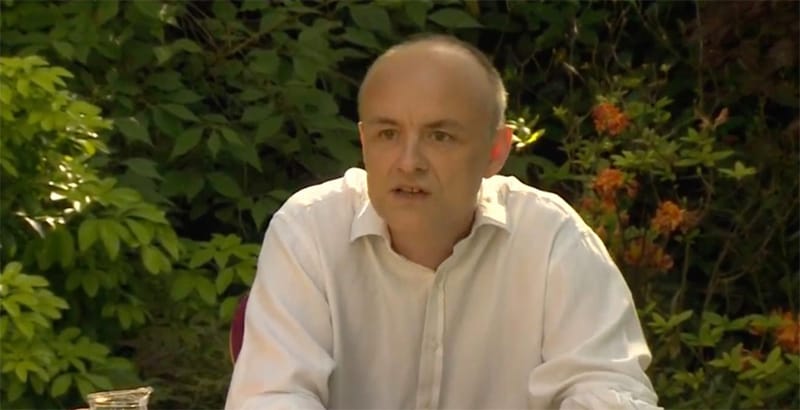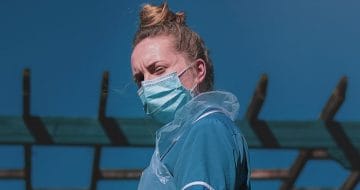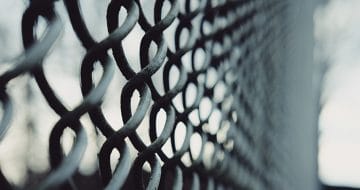Criminal barrister Syam Soni casts a legal eye over Durham saga

Dominic Cummings undertook a journey from his home in London to his parents’ residence in Durham on the 27 March 2020.
After trying unsuccessfully to weather a media maelstrom concerning those (and subsequent) movements, Cummings took to a solitary desk within the picturesque grounds of Number 10’s Rose Garden yesterday to have his say. The following is a (partial) timeline of his movements:
27 March 2020: Journey from Cummings’ London home to his parents’ home in Durham. At this point, neither Cummings nor his wife were displaying symptoms associated with coronavirus (but his wife had other symptoms.
28 March 2020: Cummings developed symptoms of coronavirus.
13 April 2020: Return journey from Durham to London.
Between those dates there were various events involving Cummings and his family, including the hospitalisation of his four-year-old child, a trip to the grounds of Barnard Castle to test his eyesight and a sojourn in some woods. The question to be considered here, however, is whether that initial journey (the Durham journey) on the 27 March 2020 — some 260 miles, a five-hour drive — was lawful.
Sat comfortably amidst the rose-red background of Number 10’s garden, Cummings essentially offered two explanations; firstly, concern that he and his wife would not be able to provide effective care to their four year-old child and, secondly, because his “London home had become a target… for harassment”.
The regulations
The relevant law is to be found in The Health Protection (Coronavirus, Restrictions) (England) Regulations 2020. That takes the form of a UK Statutory Instrument (SI), made pursuant to section 45 Public Health (Control of Disease) Act 1984. The regulations impose, inter alia, restrictions upon the operation of business and movement. Part 6 decrees a prohibition in terms that, “during the emergency period, no person may leave the place where they are living without reasonable excuse”. The regulations came into force on the 26 March 2020.
Reasonable excuse
The question, then, is what constitutes a reasonable excuse. Part 6(2) specifies a list of 12 non-exhaustive examples thereof. At first glance, ‘Cummingsgate’ does not fall into any of those. It need not, however. We must examine, then, the two explanations that have been provided.
Childcare
This justification hinges upon the need for assistance with childcare for the Cummings’ son in the event of the incapacitation of both parents. Parents equals plural. Cummings seems to have feared incapacitation such that it would render the provision of effective childcare difficult (or even impossible). There are several points to consider:
1. Government guidance specifies that:
“If you live with others and you are the first in the household to have symptoms of coronavirus (COVID-19), then you must stay at home for at least 7 days, but all other household members who remain well must stay at home and not leave the house for 14 days… for anyone else in the household who starts displaying symptoms, they need to stay at home for at least 7 days from when the symptoms appeared…”
2. Given that the government has repeatedly assured the British public that the virus will be a mild disease for the majority of the infected, why did Cummings form the view that he (and presumably his wife) would be impacted to such an extent that incapacitation would surely (or even likely) follow?; and
3. Cummings acknowledged that he did not seek the assistance of friends in London for childcare, as he did not want to expose them to a potentially deadly virus when his 17 year-old niece in Durham had offered her assistance. Would exploring options closer to London, at least in the first instance, have been a reasonable precursor to driving some 260 miles?
Want to write for the Legal Cheek Journal?
Find out moreIt is difficult to see how the Durham journey was essential at the time it was made, at least insofar as the provision of childcare was concerned. Whilst one can sympathise with a parent’s anxieties, it must be remembered that the legislation was introduced in response to exceptional circumstances where the government demanded sacrifices of the British people — and in response to which no doubt the vast majority made those sacrifices.
One must assume that Cummings did not have access to a crystal ball prior to undertaking the Durham journey on the 27 March 2020. He could not have known, therefore, if he would/had contract(ed) the virus, and, if he did/had, how bad it would be. The travel was clearly pre-emptive. Whilst that does not render it unreasonable per se, it may well be an important factor.
Harassment target
The suggestion is that the Durham journey was intended to escape the intolerable hostility of which Cummings — and his family — were a target. There does not seem to be any suggestion that the tempo of hostility was greater on the 27 March 2020, than it was, say, on the 26 March 2020, or the 27 February 2020, or indeed any other date. So, did that hostility just happen to reach a crescendo on the same day that the welfare of his child led him to make the five-hour drive?
It is difficult to see how this explanation, without further clarification, constitutes a reasonable excuse. Did a particular event increase Cummings’ fear to hitherto unacceptable levels and compel him to essentially flee? If so, what was it? Was it reported to the police? If not, why not? The devil will be in the detail and detail, if Cummings’ reticence has been anything to go by so far, will likely not be forthcoming.
There seems to be at least a prima facie case that there has been a violation of the regulations insofar as the Durham journey is concerned, and that is saying nothing about the various other escapades that seem to have ensued once there; undertaking a 60-minute driving test may well raise more than a few legal eyebrows, for example.
The future of ‘Cummingsgate’, and particularly any prosecutorial response, clearly remains to be seen. Whilst contemplating a trial may well have a whiff of prematurity, Cummings would bear an evidential burden in explaining his actions. One would presume that he would give evidence on his own behalf to that end. One can also speculate as to his performance as a witness but, judging from his performance at the Rose Garden matinee, he is certainly reminiscent of many a defence lawyer’s bread and butter ‘punter’.
Syam Soni is a criminal barrister at 4BB Chambers and Broadway House Chambers.


